PaidContent/GigaOM Conference: Amazon, Pottermore
At the paidContent/GigaOM Conference at Manhattan's TimesCenter yesterday, novelist Richard Russo elaborated on what he views as Amazon.com's predatory business practices, which he previously described in a New York Times op-ed column late last year. As he explained to paidContent staff writer Jeff John Roberts, he takes the issue personally: his daughter Emily works at an independent bookstore, and "she is directly impacted by a lot of the things Amazon is doing." One way in which Emily's expertise was particularly valuable to readers, he noted, was her ability to champion "the young authors you're not going to find as a result of Amazon algorithms."
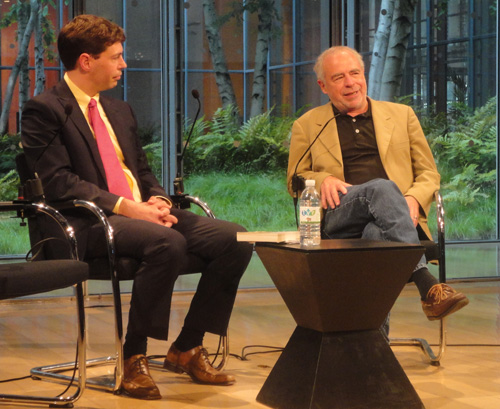 Russo compared the online retailer with a classic bully--"they don't like to fight, they like to intimidate"--while expressing doubts that government intervention would lead to a more uniformly fair playing field for booksellers and publishers. "They seem to want to referee the match," he commented when asked about the Department of Justice, "but they only want to call fouls on one side." Instead, he called on publishers and consumers to keep up public pressure: "When enough people call them on [their tactics], they tend to back off." For all that, "I'm not anti-Amazon," Russo concluded. "What I am in favor of is Amazon playing fair."
Russo compared the online retailer with a classic bully--"they don't like to fight, they like to intimidate"--while expressing doubts that government intervention would lead to a more uniformly fair playing field for booksellers and publishers. "They seem to want to referee the match," he commented when asked about the Department of Justice, "but they only want to call fouls on one side." Instead, he called on publishers and consumers to keep up public pressure: "When enough people call them on [their tactics], they tend to back off." For all that, "I'm not anti-Amazon," Russo concluded. "What I am in favor of is Amazon playing fair."
In a later session of the conference, Pottermore CEO Charlie Redmayne discussed the Harry Potter fan site's early success, citing £1 million (about $1.57 million) in e-book sales in the first three days and a total of £3 million (about $4.7 million) in the first month--with over half of the sales, he noted, coming via direct traffic rather than through other retailers. The e-books are offered without DRM, and since they became available, the uploading of J.K. Rowling's original novels to file-sharing sites has decreased, a trend Redmayne sees not as evidence that abandoning DRM reduces piracy so much as simply making the books available in digital format.
He also talked about the site's expansion of Rowling's elaborate fictional universe, which currently focuses on Harry Potter and the Sorceror's Stone. "The stories are actually a very narrow corridor that runs through that world," he noted. What Pottermore offers, he said, is "exactly what it says on the tin," and the average fan's visit can currently be measured either in a span of 23 minutes or a string of more than 40 web pages. Similar content is in development for the other six novels in the series, and although it's not quite where they want it to be yet, "we will build something extraordinary," Redmayne promised.
Naturally, conference attendees wanted to know if Pottermore's success was replicable or unique to Rowling. Redmayne identified a few other publishing brands, like The Hunger Games, that he thought might conceivably approach the imaginative complexity of Rowling's worldbuilding, but made no predictions as to anyone else's ability to convince online retailers like Amazon to direct customers back to their own website, as Pottermore did. What it will take is the ability to offer the widest possible distribution in all the right formats at the lowest possible price. Because they could meet that criteria, he said, when Pottermore made its proposal to Amazon, "we didn't drag them kicking and screaming--they got it." --Ron Hogan






SHELFAWARENESS.0213.S4.DIFFICULTTOPICSWEBINAR.gif)




 In a filing on Tuesday in federal District Court in New York,
In a filing on Tuesday in federal District Court in New York, 
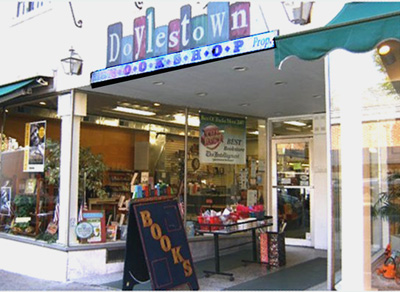 Glenda Childs has bought the
Glenda Childs has bought the SHELFAWARENESS.0213.T3.DIFFICULTTOPICSWEBINAR.gif)
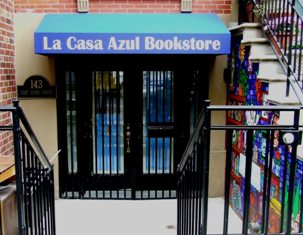 Congratulations to
Congratulations to  Owner Aurora Anaya-Cerda funded the store in part with a campaign that raised $40,000 in 40 days. The store aims "to offer cultural and educational programs via Latino literature and art in East Harlem" and will be "a place where reading, writing and creative expression is encouraged, and a place where ideas, curiosity and community spirit are celebrated."
Owner Aurora Anaya-Cerda funded the store in part with a campaign that raised $40,000 in 40 days. The store aims "to offer cultural and educational programs via Latino literature and art in East Harlem" and will be "a place where reading, writing and creative expression is encouraged, and a place where ideas, curiosity and community spirit are celebrated."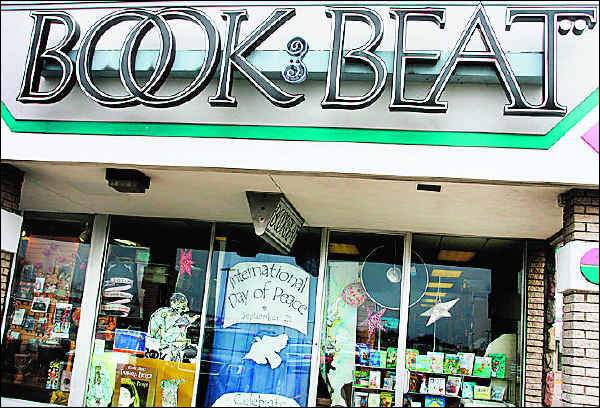 Book Beat won in the general bookstore category; Monkey See, Monkey Do won in the children's specialty category. The awards will be presented at BEA's Children's Book and Author Breakfast on Wednesday, June 6, in the Javits Special Events Hall.
Book Beat won in the general bookstore category; Monkey See, Monkey Do won in the children's specialty category. The awards will be presented at BEA's Children's Book and Author Breakfast on Wednesday, June 6, in the Javits Special Events Hall. Each winner will receive a check for $1,000 and a framed piece of original art. This year's artwork will be contributed by Jenni Desmond and George Ford (the first illustrator to win the Coretta Scott King Book Award in 1974). Penguin Young Readers Group is again underwriting the award.
Each winner will receive a check for $1,000 and a framed piece of original art. This year's artwork will be contributed by Jenni Desmond and George Ford (the first illustrator to win the Coretta Scott King Book Award in 1974). Penguin Young Readers Group is again underwriting the award. Congratulations to Mary Gay Shipley! In the Tuesday primaries in Arkansas, the
Congratulations to Mary Gay Shipley! In the Tuesday primaries in Arkansas, the 
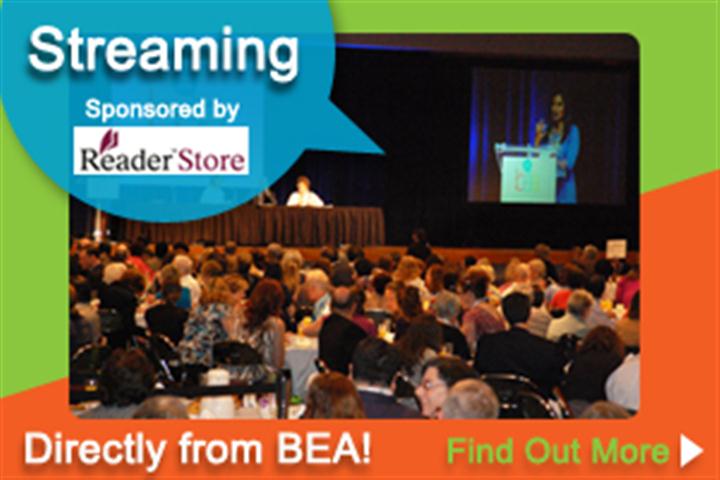 BEA will broadcast 20 hours of live coverage from the convention and will add events to the BEA website after the show. The live events will feature Twitter and Facebook sharing and an interactive chat feature allowing viewers from around the globe to interact. A few questions will be taken from outside viewers for BEA panelists.
BEA will broadcast 20 hours of live coverage from the convention and will add events to the BEA website after the show. The live events will feature Twitter and Facebook sharing and an interactive chat feature allowing viewers from around the globe to interact. A few questions will be taken from outside viewers for BEA panelists. 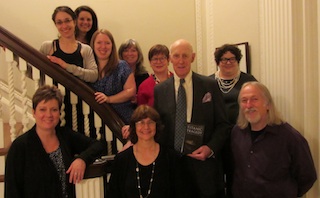
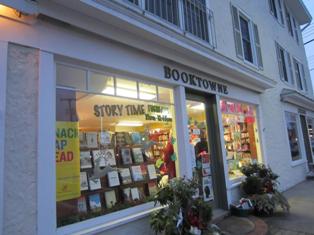 Congratulations to
Congratulations to 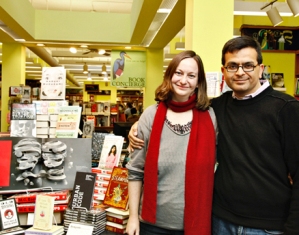 Congratulations to
Congratulations to 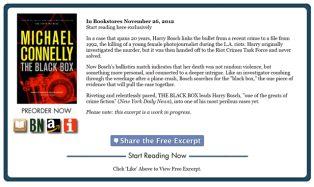 Hachette has launched ChapterShare, a Facebook app designed to make the reading of book excerpts a social experience. When Hachette's publishing divisions and authors post chapters from forthcoming works on their Facebook pages, the excerpts can be read and shared, and the books preordered. The app debuts with selections from the opening chapter of
Hachette has launched ChapterShare, a Facebook app designed to make the reading of book excerpts a social experience. When Hachette's publishing divisions and authors post chapters from forthcoming works on their Facebook pages, the excerpts can be read and shared, and the books preordered. The app debuts with selections from the opening chapter of  BookAnd
BookAnd On Monday at 9 p.m., HBO is airing Hemingway & Gellhorn, starring Clive Owen as Ernest Hemingway and Nicole Kidman as Martha Gellhorn. (She was his third wife; he was her first husband.) The director is Philip Kaufman; scriptwriter is Jerry Stahl.
On Monday at 9 p.m., HBO is airing Hemingway & Gellhorn, starring Clive Owen as Ernest Hemingway and Nicole Kidman as Martha Gellhorn. (She was his third wife; he was her first husband.) The director is Philip Kaufman; scriptwriter is Jerry Stahl. A film adaptation of John Kennedy Toole's modern classic
A film adaptation of John Kennedy Toole's modern classic 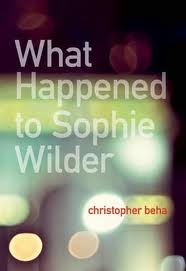 Christopher Beha's short but intricately constructed first novel tells the story of two young writers struggling to discover their personal and professional identities, but it's not another excursion through the world of New York's literati. Instead, What Happened to Sophie Wilder is a somber character study focused on the problem of human suffering, the nature of religious belief and the acceptance of moral responsibility.
Christopher Beha's short but intricately constructed first novel tells the story of two young writers struggling to discover their personal and professional identities, but it's not another excursion through the world of New York's literati. Instead, What Happened to Sophie Wilder is a somber character study focused on the problem of human suffering, the nature of religious belief and the acceptance of moral responsibility.